What Is Dark Fantasy? We Asked Author Marianne Gordon to Break It Down
The subgenre can feature elements of fantasy, historical fiction, mystery, mythology and more
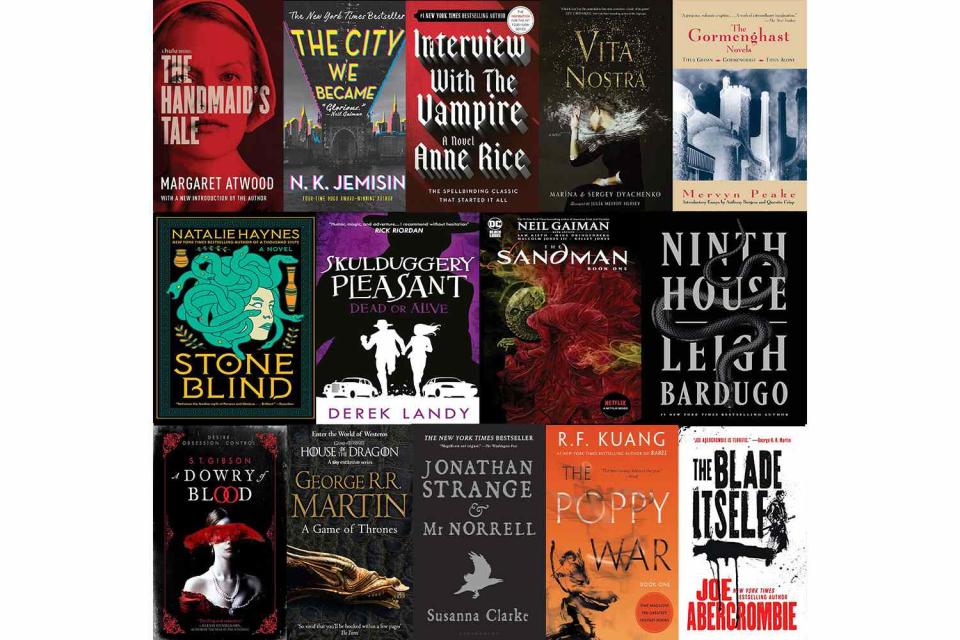
courtesy amazon
Dark Fantasy recommendationsDark fantasy as a sub-genre of fantasy literature is difficult to define. It is often described as an unholy blend of horror and fantasy. It began to emerge in the 19th century when the brooding atmosphere of gothic literature was gaining popularity, and really took off in the 20th century with authors like H. P. Lovecraft and Gertrude Barrows Bennett as a more self-contained subgenre with its own flavor of the grim, the sombre, the grotesque.
When friends ask me why I like writing it, I say it’s because dark fantasy takes each scenario to its most honest conclusion, assuming the same stupidities of this world, the same greed, the same basic human aptitude for idiocy and/or evil.
The PEOPLE Puzzler crossword is here! How quickly can you solve it? Play now!
If you take your average Joe and drop them into a fantasy setting, beset by dragons, the undead or naughty fae, they’re going to have a bad time. They’ll have to make decisions that are at best morally grey and at worst villain-creating, and the issues that they’ll face — of abuse, war, poverty, etc — are very real.
Related: Romantasy 101: Here's Where to Start Reading the Hottest Genre of 2024 (Exclusive)
For that reason, dark fantasy is one of the best subgenres not just for escapism (and don’t get me wrong, escapism is an absolute necessity in this day and age) but as a psychological tool for talking about everyday difficulties in a space that is, by virtue of being a step removed in a separate world, more safely navigable.
Below are some of my favorite sub-subgenres in dark fantasy. This is by no means an exhaustive list: many overlap, many are genres in their own right, and some readers may disagree with my classification of particular titles as dark fantasy. But since the definitions seem to change about as often as the Scottish weather, here’s my rainhat flung merrily into the ring.
Grimdark: 'The Blade Itself' by Joe Abercrombie
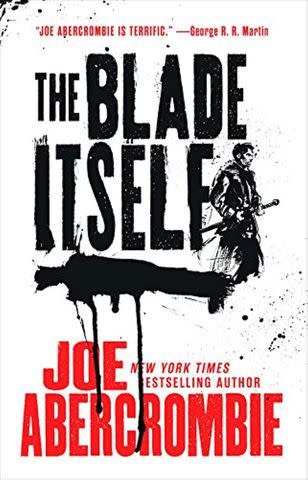
courtesy amazon
The Blade ItselfGrimdark is actually a term derived from the Warhammer 40,000 universe, which has the tagline “In the grim darkness of the far future there is only war.” It’s a particularly brutal and bleak type of speculative fiction, in which the lowest morals rule the world and there is no such thing as a happy ending.
You can’t talk about grimdark fantasy without mentioning Joe Abercrombie. The Blade Itself was his astonishing debut, a dark, gritty tale written with dry wit, following six characters as a stagnant empire rots into an unavoidable war.
Abercrombie’s greatest strength are his characters: each of the six is so well-formed that you can even predict what they’re going to do next based on what you’ve learned about their personalities, and it feels like watching an inevitable car crash as those personalities pivot the plot.
Dark Academia: 'Ninth House' by Leigh Bardugo
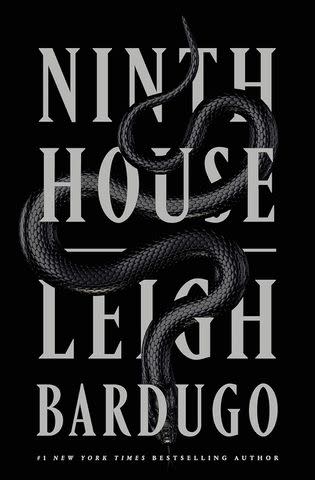
Flatiron Books
Ninth HouseWhatever happened to those children who yearned to receive that owl-delivered letter on their 11th birthday?
Well, they grew up and grew cynical, and realized that the house elves supplying those bountiful feasts in the great hall were probably not there by choice, and that it was not particularly cool of the wizarding world to keep bone-regrowing juice and other useful magics from the muggles.
Dark academia explores what a magic school would really look like. Would magic be easy to learn, or involve research, learning, examinations, just like any other course? Would magic be freely accessible, or kept for the elite? And would the likes of you and me be capable of mastering it?
One of my favorite recent dark academia series has been the Alex Stern books by Leigh Bardugo. The series follows a traumatized, street-smart young woman as she embarks on her first year at Yale University. But all is not as it seems; Alex has an unusual gift and has been tasked with keeping an eye on the secret societies which underpin Yale’s politics and wealth. The series dares to ask the question: if magic were real, what would stop the privileged 1% from abusing it as they do everything else?
Gothic: 'A Dowry of Blood' by S. T. Gibson
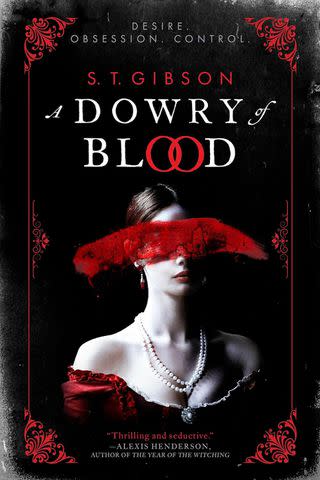
courtesy amazon
A Dowry of BloodGothic fantasy is a literary atmosphere more than anything, defined by the typically Gothic ambience of the gloomy and the mysterious. I could easily have recommended Bram Stoker’s Dracula here, but one of my favorite recent reads by S. T. Gibson is a retelling from the point of view of Dracula’s first bride, Constanta.
It’s sexy, gory and redemptive, but it also explores the circumstances of manipulation and love that might induce someone to remain – in this case, for centuries – in the thrall of an abusive relationship.
Dystopian: 'The Handmaid’s Tale' by Margaret Atwood
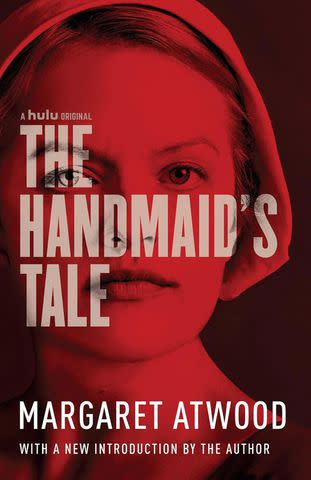
courtesy amazon
The Handmaid's TaleSpeculative near-future dystopias usually get shelved in science fiction, but there are definitely a few books in the intersection of the Venn diagram where speculative dystopia meets dark fantasy meets horror. One such book (and not everyone will agree with me) is The Handmaid’s Tale. Whether or not you enjoy speculative fiction, it’s a must-read.
The book explores what would happen in a world where births are dangerously rare and women have no value beyond their wombs, and all the horrors that entails. It’s a difficult but important commentary on the very real dangers facing women worldwide, delivered with Atwood’s trademark wit, heart and silver pen.
Historical Setting: 'The Poppy War' by R. F. Kuang
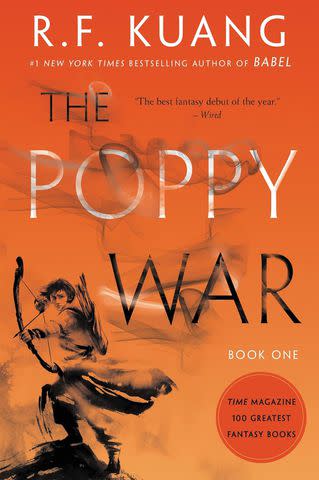
courtesy amazon
The Poppy WarI gave this its own category because there are some amazing books emerging which are either set in or inspired by real history. The prose has an added spice because it plumbs the depths of real human evil for its source material. It doesn’t really have to ask "what if" because we already know. Magical realism is often seen as first emerging from Latin American literature, where authors who had endured horrific historical or personal tragedies wrote about real events with a fantastical spin.
Related: Julia Alvarez Isn't Done Telling Stories, but She Might Stop Writing Them Down Soon (Exclusive)
The Poppy War is a historical military fantasy, and it’s one of the most intricately crafted worlds I've ever read in a debut. It’s drawn from the very real and disturbing history of 20th century China, and you can tell the author knows her stuff by the level of detail alone.
It follows Rin, a peasant girl and an outsider who, through sheer intellect, gets herself accepted into the elite military school of Sinegard, and then recruited to fight in a brutal war. At the same time, she discovers she has a natural gift for shamanism, and that the gods she believed to be myth are merely a breath away.
Retelling: 'Stone Blind' by Natalie Haynes
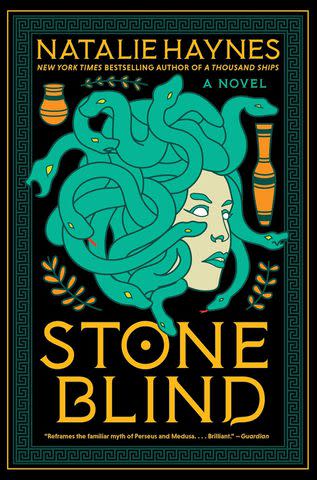
courtesy amazon
Stone BlindThere has been a fantastic blossoming of fairytale and myth retellings recently, which reimagine old folktale material, from Norse mythology through to the Greek pantheon. Usually they fall into two groups; the first is more Jungian, using folk tales as a way of understanding humanity’s subconscious and universal cultural experiences (like coming of age). The second is more recent, and seeks to rethink common stories from previously-unconsidered angles, often from a feminist perspective.
Related: Scarlett St. Clair Is Heating Up Greek Mythology with a Steamy Twist on an Old Story (Exclusive)
My favorite falls into the latter category. It tells the tale of Medusa, the original monster of myth, but completely flips the classic story on its head. Before Medusa was a gorgon, she was a young woman. When Poseidon attacks her in Athena’s temple, violating the sacred space, Athena seeks her revenge not from him, but from Medusa.
The book is brutal, honest, feminist and angry, justifiably so. I’d recommend checking out Haynes’ podcast on the topic, too, Natalie Haynes Stands Up for the Classics.
Fae (or Beasties Behaving Badly): 'Jonathan Strange and Mr Norrell' by Susanna Clarke
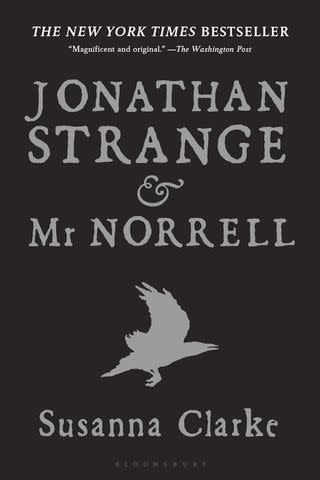
courtesy amazon
Jonathan Strange & Mr. NorrellOne of my favorite tropes in fantasy is when there is a foil creature to humanity, something wild, unpredictable and Other which can’t be called good or evil because it has no concept of a moral compass. Jonathan Strange and Mr Norrell is set in Northern England during the Napoleonic wars, when practical magicians are beings of the past; all except the reclusive Mr Norrell.
The magician reluctantly uses his skills to defend King and country, attracting as an apprentice the bold and dashing Jonathan Strange. As their attitudes towards magic clash, they find themselves under the scrutiny of the fairy kingdom and at its behest.
I adored the fairy realm. It appears beautiful, bountiful, beneficent, but beneath the illusion is a world of rot and malice, testimony that fairies don’t need riches but enjoy the idea of them. The idea of illusion hiding something foul is a common horror trope, that one’s eyes cannot be trusted. The book is beautifully written and takes its time, sinking its teeth into the world. Clarke’s Georgian Yorkshire is deeply and lovingly researched.
Horror: 'Interview with the Vampire' by Anne Rice
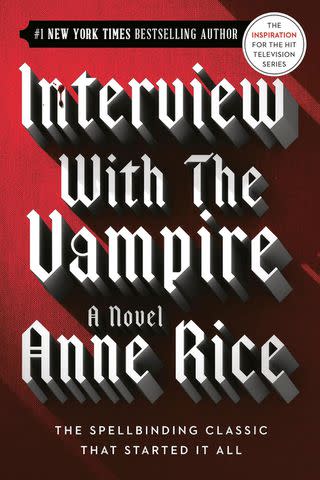
courtesy amazon
Interview with the VampireIt’s hard to say where to draw the line between dark fantasy and horror, but there seems to be a grey area of overlap. Arguably, one of the defining features of horror is that it offers a safe outlet for strong emotions that we usually repress, such as terror or disgust; reading or watching scary stories is cathartic. This is where the genre marries so well with dark fantasy, because both offer a controlled space to explore feelings or concepts inappropriate for daily conversation.
Anne Rice’s Vampire Chronicles were some of the first books that openly portrayed vampires as deeply sexual and alluring. In Interview With the Vampire a reporter records the story of Louis de Pointe du Lac, a 200-year-old vampire filled with the type of self-loathing only centuries in one’s own company can inflict.
Vampires feed on the sensual and the book is charged with it, from barely contained homoerotic desire to the dark allure of blood. As a confused teenager, I didn’t know if I wanted to be with Lestat or be Lestat.
High Fantasy: 'A Game of Thrones' by George R. R. Martin
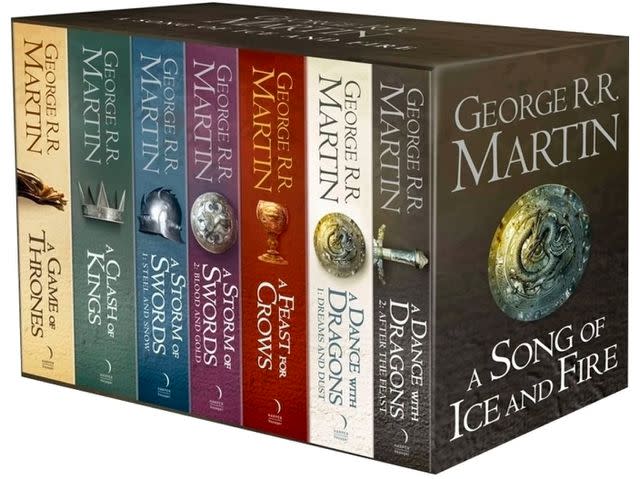
Orcs, dragons, elves, but make it brutal. Take Tolkien’s recipe and substitute the rangers’ honor code with human appetite, add a sprinkling of gore, introduce some misery and give it all teeth.
It wouldn’t be a dark fantasy list without A Song of Ice and Fire. If the War of the Roses had dragons, this is what it would have looked like. The series is a masterclass in realistic political intrigue. The books feel like Martin has wound up a great machine and is watching the parts fly, simply recording what he sees as characters are driven by ambition and lust, and families backstab and plot their way to ruin.
Urban Fantasy: 'The City We Became' by N. K. Jemisin
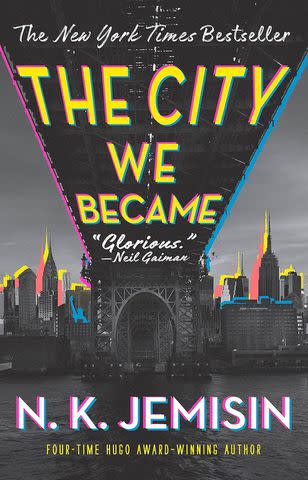
courtesy amazon
The City We BecameUrban fantasy takes modern cityscapes and makes them Different, blending the familiar with the strange, the real with the otherworldly. London, but with a vast underground haunted by angels and monsters; Chicago, but throw in some werewolves.
The City We Became is often described as a fantasy writer’s love letter to New York. When cities reach a certain size, they desire to live, and in the contractions of birth, they risk attracting an ancient evil.
Five protectors must unite against it, five avatars of New York’s boroughs, each an embodiment of one of New York’s myriad cultural groups. It’s fiery and heartfelt, and it’s hard not to be infected by the author’s clear love for the city.
'Weird (or Wyrd) Fiction: 'Vita Nostra' by Marina Dyachenko, Sergey Dyachenko, Julia Meitov Hersey (Translator)
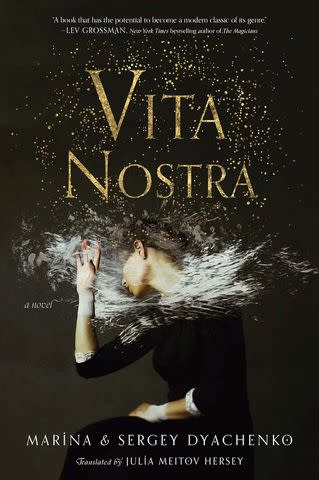
courtesy amazon
Vita NostraWeird, wonderful, mind-bending, this is the category of the absurd, the speculative pumped up a notch. What makes it dark is that it’s often uncomfortable; events can’t always be explained, endings aren’t always tied in a neat bow, but something of the eldritch creeps in.
Vita Nostra, by two Ukrainian authors, is about a teenage girl, Sasha, who must perform increasingly bizarre tasks against her will to become accepted into the Institute of Special Technologies.
At the school, her lessons are mind-altering, exercises in mental illusion, but if she fails, her family will be punished. Sasha begins to change into something more than human, more than can be defined by simple language. The book is peculiar and philosophical, unlike anything I’ve ever read, and it does not ask to be understood so much as witnessed.
Non-Supernatural: 'The Gormenghast Trilogy' by Mervyn Peake
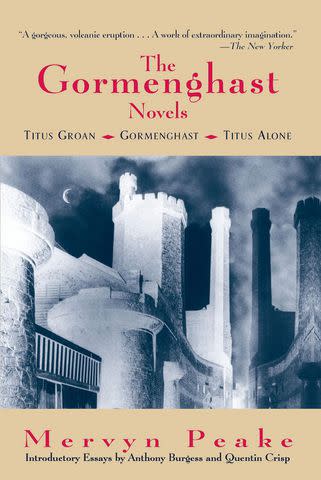
courtesy amazon
The Gormenghast NovelsThis little-mentioned subcategory for dark fantasy is unarguably still fantasy — in that it’s set in another world — but there is no magic, no otherworldly technology, no new peoples. It is simply Other.
One trilogy I’ve loved — and which was my mother’s favorite as a child — is set in the grey castle of Gormenghast ruled by the Groan family. The atmosphere is of gloomy foreboding, as the family shuffles through the excruciating formalities and rituals involved in the birth of a new Groan heir, all under the ambitious gaze of the servant Steerpike.
There is no magic besides the allure of a painstakingly wrought, completely different world. I think Peake both loved and loathed his characters for their idiosyncrasies. Sinister and eccentric.
Graphic Novels: 'Sandman' by Neil Gaiman et al.
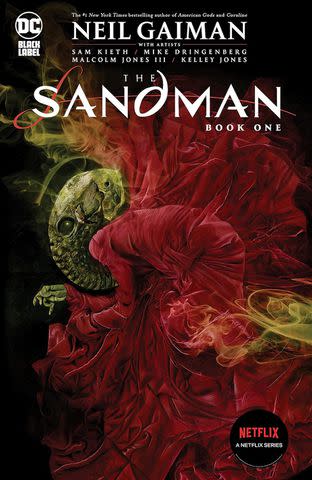
courtesy amazon
The SandmanWhile not exactly a subgenre, there should always be space for graphic novels when we’re talking about fantasy fiction, dark or otherwise. They have some of the most imaginative, beautiful stories accompanied by weird and wonderful artwork that can transport you to another world just as easily as the written word.
The most widely recognizable contender is of course Sandman, headed by Neil Gaiman. The comics follow Dream, who has been trapped for a hundred years within a rich aristocrat’s cellar, at last freed and on a mission to find his stolen relics and restore his broken kingdom. It is the perfect setting to display the best and worst of Neil Gaiman’s imagination, from beautiful dreamscapes to the most depraved nightmares of hell beasts and humanity.
Young Adult: 'Skulduggery Pleasant' by Derek Landy
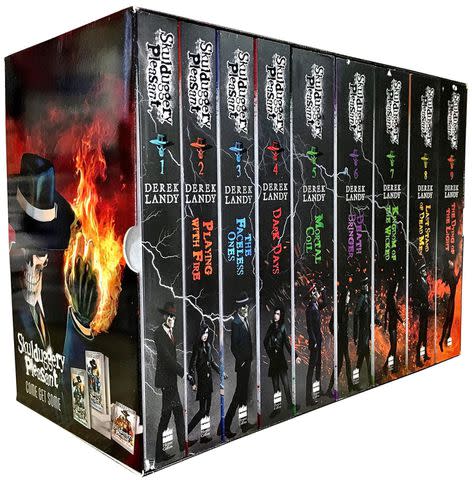
courtesy amazon
Skulduggery PleasantStart ‘em young! Dark fantasy readers have to begin somewhere. There are so many young adult and middle-grade series out there that I still enjoy reading as an adult. The Skulduggery Pleasant series follows the titular character, an ace supernatural detective, and his new apprentice, Valkyrie Cane, as they investigate the dark secrets of ancient evil.
The series is so much fun and on long car journeys, I always find myself listening to the audiobook, read by the honey-voiced Rupert Degas. It’s sassy, slick and got me hooked on the macabre.
For more People news, make sure to sign up for our newsletter!
Read the original article on People.


